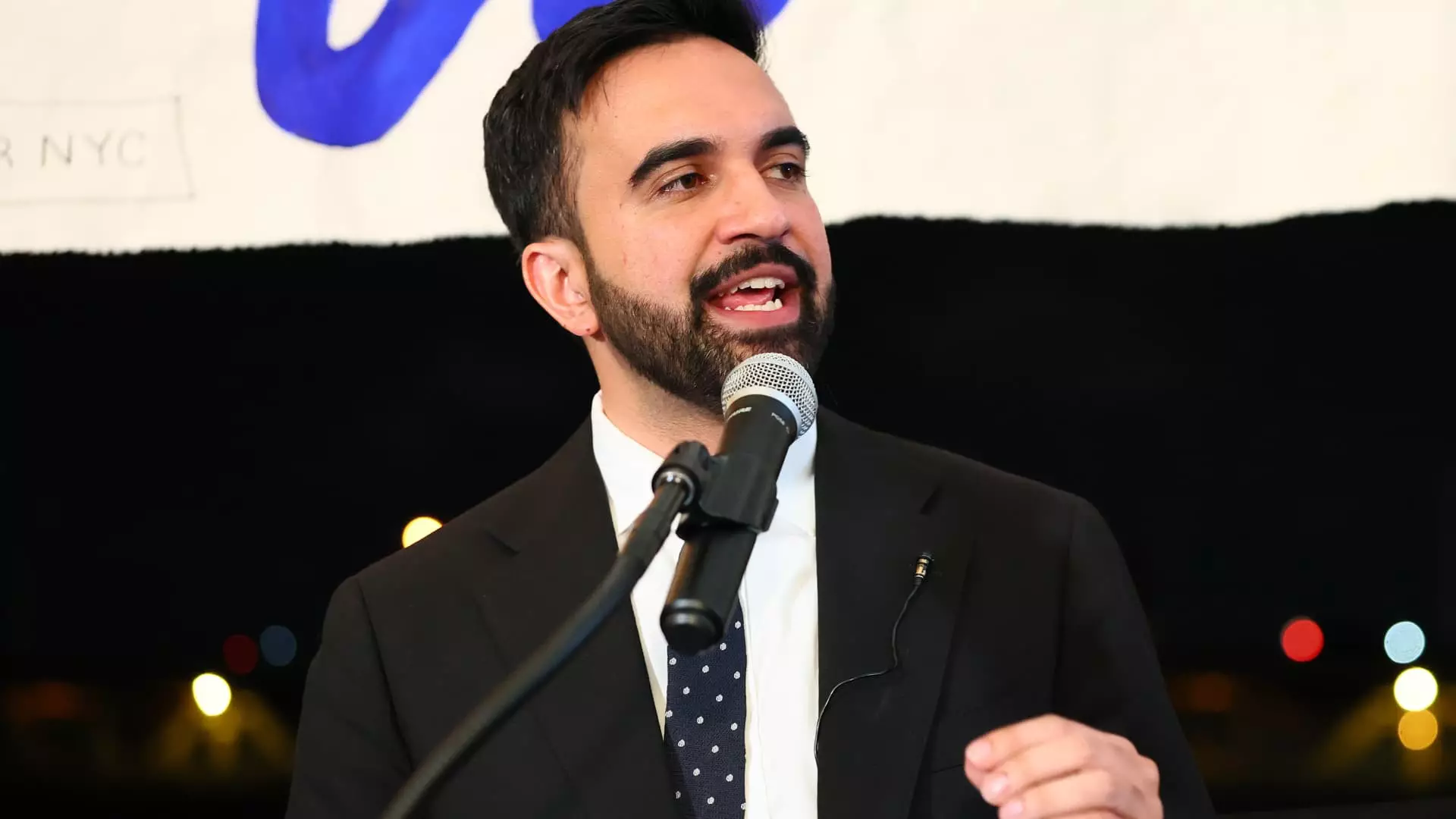In a surprising turn of events, Zohran Mamdani’s apparent victory in the New York City Democratic primary signals a significant ideological shift in one of America’s most influential urban centers. While on the surface this might seem like a classic political contest, the economic implications run far deeper—particularly for financial institutions with exposure to New York’s complex real estate market. Flagstar Bank, formerly known as New York Community Bancorp, experienced a notable 6% decline in its shares amid fears that Mamdani’s proposed rent control policies could jeopardize its multi-family loan portfolio. Here lies a stark reminder: political trends are not isolated to city hall—they carry weight that can ripple through national markets.
Mamdani’s platform champions a rent freeze in stabilized units—a policy that resonates with progressive voters but threatens the profitability of large-scale rental operations. The mayoral role, while limited in direct taxation power, wields influence through appointments to regulatory boards that determine rent control measures. Such policies directly challenge the financial viability of multi-family properties, especially those utilizing federally-insured or bank-financed loans. The uncertainty surrounding these policies raises legitimate fears amongst investors and lenders who now face the possibility of diminished returns or increased losses.
Financial Sector Under Siege: Uncertainty and Potential Losses
Flagstar’s exposure to this regulatory risk is significant. Current estimates suggest that up to a quarter of Flagstar’s multi-family loan portfolio—approximately $16 billion to $18 billion—could be impacted by strict rent controls. Yet, some analysts believe the risk is somewhat contained, noting that many buildings have rent regulation levels that already suppress revenue growth. Deutsche Bank and Morgan Stanley, for instance, estimate a more conservative exposure, with Morgan Stanley suggesting that only about $11 billion to $12 billion of the bank’s portfolio lie predominantly in rent-regulated buildings.
Despite this, the specter of a long-term rent freeze remains troubling. The prospect of sustained rent limitations could compel financial institutions like Flagstar to bolster their loan loss reserves. Such reserve hikes would inevitably constrict their lending capacity, slow down credit flow, and dampen the overall economic vitality of New York City’s real estate market. This scenario is anxious not only for Flagstar but for the broader banking sector that heavily depends on the stability of the NYC property market.
Office and commercial real estate stocks, such as SL Green Realty and Vornado Realty Trust, are also feeling the heat, dropping nearly 5%. This downward trend underscores investor skepticism about New York City’s economic resilience in the face of shifting political winds. The city’s leadership, increasingly influenced by progressive ambitions, risks alienating both business interests and consumers with policies that disrupt the city’s economic engine.
Political Dynamics and the Future of Urban Economic Policy
Mamdani’s platform, which includes calls for higher corporate taxes, signals a clear ideological stance that may clash with broader economic realities. While the mayor’s office has limited influence over tax laws—reserved for state and federal legislatures—the symbolic power of such proposals cannot be understated. They serve as a warning shot to the business community: progressive policies are gaining momentum, and the city’s leadership is willing to challenge the status quo, even if it means unsettling established economic foundations.
The primary dynamics suggest a city edging toward a more interventionist model where rent controls and social equity measures could become the norm, not the exception. This shift risks fostering a climate of uncertainty that could deter investment and cripple growth. The political victory of Mamdani, leading in first-round votes and poised to become the Democratic nominee, is a testament to the city’s changing electorate—a trend that will undoubtedly turn policymakers’ focus towards social and regulatory reforms that prioritize equity over profit.
While Mamdani’s rhetoric may seem idealistic to some, it embodies a deeper challenge to the free-market principles that have historically underpinned New York’s economic success. Investors and financial institutions must now recalibrate their risk assessments, acknowledging that the city’s political landscape is evolving in a way that could infringe upon the profitability of traditional revenue streams. This creates a tense, uncertain future where economic stability may be sacrificed at the altar of progressive ambitions.

